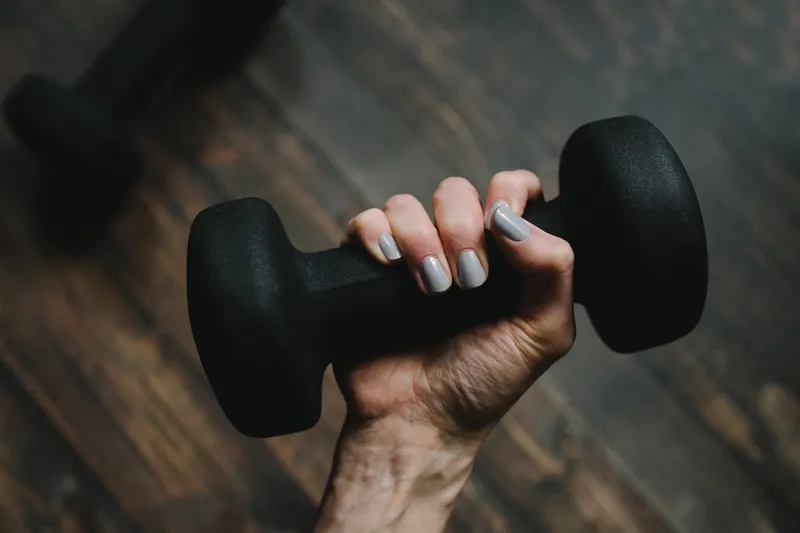Use It or Lose It: a Terrifying Concept
How are you supposed to stop skills fading if you don't keep regularly using them?
13 Mar 2023

In the last few years I’ve developed a much better exercise habit.
But it’s not a consistent habit. There are times when I stay disciplined and push myself for months on end. And then there are the weeks when energy and discipline are harder to come by, and I let it slide.
After one of these undisciplined times, I’m always amazed at how difficult it is to get back into the swing of exercise. Just a few days of laziness and my body apparently regresses, like a chubby elastic band snapping back into place.
Luckily, it works both ways: a few days of exercise and I snap back quicker than last time.
It seems that, when it comes to muscle, the old saying is true: use it or lose it.
But… that’s true for everything
Our brains work on similar principles to the rest of our bodies, optimizing themselves to be better at whatever we’re currently making them do.
This is great for learning new things, but it’s terrible for holding onto the things we already know.
Anyone who’s learned another language will recognise that feeling of mental rustiness when you haven’t used it in a while: I know I know this word, but I can’t think what it is…
It feels like the brain connections for switching between languages fade, without frequently refreshing them.
And this is true of all knowledge. My degree was in physics, so there was a time when you could throw a bunch of partial differential equations at me and I’d merrily solve them and be on my way.
Of course, I might be slightly aggrieved you were making me solve equations for no reason – but I could have managed it.
Today, some years later, it’s not quite so easy. The skill is buried a little deeper in my brain than it once was.
Is this bad?!
This might seem like terrible news. Are our brains optimised for using the same knowledge over and over, only honing abilities in one or two particular areas? How are you supposed to maintain diverse skills in crafts, programming, dancing, languages, history and cookery all at once, if they fade if you don’t keep regularly using them?!
As I see it, there are only two options:
Option #1: a complex series of optimal skill refreshment
In theory, I could design a routine to keep all of my skills perfectly topped up. Maybe I’d practice languages for a few minutes each day, maths and programming for a few hours a week, exercise regularly, plus build in time for whatever other skills I want to keep fresh.
Oh, and at some point I’d need to work and stay on top of all the necessary life admin, too.
Or…
Option #2: the ancient art of Just Not Worrying About It
… I could just accept that this is simply how humans work.
My natural temptation is to beat myself up for daring to forget things. Part of me apparently believes I’m a failure if I can’t constantly do everything I was once able to do.
But I can’t be at peak performance in every discipline, all the time.
(The very definition of “peak” performance is a hint – it’s something we achieve only with great effort.)
I’m not making excuses for failure. I’m just choosing not to pick a fight with reality over this. Especially since…
There is also some good news
My inexpert understanding of neuroscience is that our brains don’t exactly delete information we haven’t been using. It’s just that the connection to the information becomes trickier to access.
In other words, once we pick something back up, there’s an initial period of rustiness, and then things suddenly click into place as the connections reform.
This chimes with my experience, in both physical exercise and mental work like languages. Those foreign words aren’t entirely forgotten, they just need unpacking from storage. Or, if you prefer, having built the muscle once, it’s much easier to rebuild it next time.
Not only is there no point getting upset about inevitable skill depletion – in reality, it’s not as bad as it sounds. We don’t exactly slip back to zero. If there are skills we want to keep fresh, we just need to occasionally brush the rust off and keep those connections fresh.
This article was originally written for Puttylike

Neil Hughes is the author of Walking on Custard & the Meaning of Life, a comical and useful guide to life with anxiety, and The Shop Before Life, a tale about a magical shop which sells human personality traits.
Along with writing more books, he spends his time on standup comedy, speaking about mental health, computer programming, public speaking and everything from music to video games to languages. He struggles to answer the question "so, what do you do?" and is worried that the honest answer is probably "procrastinate."
He would like it if you said hello.